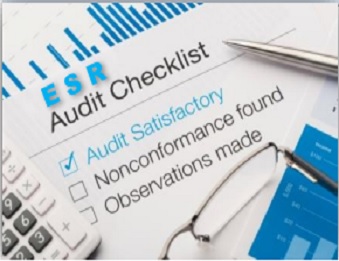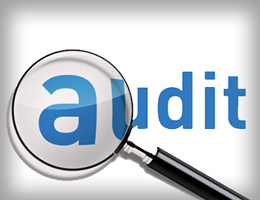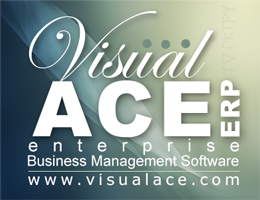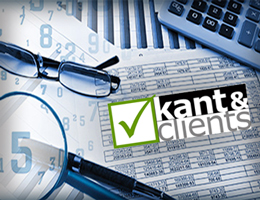Economic Substance Regulation Services (ESR)
Index
ESR Summary
ESR Services Brochure
ESR Details/Regulations
Contents
ESR Summary
Businesses of UAE -
Are you ready for Economic Substance Regulation (ESR)?
Well, we have experience to do it for you!
Fines for failing to submit notification by 30.06.2020:
AED 10000-50000 !
What is ESR?
Economic Substance Regulation (ESR) is a new UAE legislation applicable to all onshore/freezone/offshore companies in UAE carrying on relevant activities. The purpose of the law is to ensure there is economic substance in the country proportionate to the economic activities. This is to prevent businesses to shift base from tax countries to tax havens like UAE without actually shifting economically substantive activities, just to avoid paying taxes. UAE is signatory to and member of The Inclusive Framework on Base Erosion and Profit Shifting (BEPS) that brings together over 135 countries and jurisdictions to collaborate on the implementation of the OECD / G20 BEPS Package.
Is it applicable to your business?
All businesses in UAE, onshore, offshore, freezone, carrying on the relevant activities, needs to ensure they meet Economic Substance Test (EST) requirements and file notifications by 30.06.2020, failing which fines of AED 10000 – 50000 are applicable (there are escalating fines for other offences related to ESR). Applicable businesses have also to file Economic Substance Return within 12 months of year-end for financial years starting from 1.1.2019.
How can we help you?
Backed by 25 years’ experience as Chartered Accountants in Auditing, VAT Services, Business Setup and other professional services, together with its associated companies, Kant & Clients can provide you professional services to meet these requirements as under:
Economic Substance Regulation (ESR) Services
- Basic Assessment to check the applicability of ESR to your business
- Advanced Assessment to check the applicability of ESR to your business (if Basic Assessment is affirmative)
- Helping you file ESR Notifications with the relevant Authority, as per the trade license type (LLC, Freezones, Offshore, etc)
- Review of ESR Gross Revenues and other data required to be submitted in ESR Returns
- Helping you in preparing and file ESR Returns
- Statutory Audits & Report, disclosing ESR related and other Gross Revenues and other data, providing reconciliation with ESR Returns, to ensure there is no discrepancy
- Consulting on all matters related to ESR
Why Us?
- Kant & Clients, together with its associated companies Emirates Business Management (EBM), and Visual ACE Business Solutions, can deliver a full range of professional services - Audit, VAT, ESR, Business Set-up, ERP, Accounting, etc.
- Experience with 3000 clients in 30 countries for 25 years
- Legally registered External/Statutory Auditors
- Integrated Business Excellence Services – ISO, TQM, EFQM, DQA, Consulting for HR/Marketing
Contact us for more details:
Email: ESR@kantandclients.com
Website: www.kantandclients.com/ESR
Tel: 04-2237270 Mobile: 050-4567077
ESR Details/Regulations
Economic Substance Regulations
As part of the UAE’s commitment as a member of the OECD Inclusive Framework, and in response to an assessment of the UAE’s tax framework by the European Union (“EU”) Code of Conduct Group on Business Taxation, the UAE introduced a Resolution on the Economic Substance (Cabinet of Ministers Resolution No.31 of 2019, the “Regulations”) on 30 April 2019. Guidance that provides further clarity on the application of the Regulations was issued on 11 September 2019. The Regulations require UAE onshore and free zone companies and other UAE business forms that carry out any of the “Relevant Activities” listed below to maintain an adequate “economic presence” in the UAE relative to the activities they undertake.
- Banking Business
- Insurance Business
- Investment Fund management Business
- Lease - Finance Business
- Headquarters Business
- Shipping Business
- Holding Company Business
- Intellectual property Business (“IP")
- Distribution and Service Centre Business
 Economic Substance Relevant Activities Summary
Economic Substance Relevant Activities Summary
 Economic Substance UAE Economic Substance Flowchart
Economic Substance UAE Economic Substance Flowchart
 Ministerial decision no. 215 for the year 2019
Ministerial decision no. 215 for the year 2019
 Ministerial decision no. 215 for the year 2019
Ministerial decision no. 215 for the year 2019
 COVID – 19 Industry Advisory Notification
COVID – 19 Industry Advisory Notification
The Economic Substance Regulations
1.Why has the UAE introduced Economic Substance Regulations?
The UAE introduced Economic Substance Regulations to honour the UAE’s commitment as a member of the OECD Inclusive Framework on BEPS, and in response to a review of the UAE tax framework by the EU which resulted in the UAE being included on the EU list of non-cooperative jurisdictions for tax purposes (EU Blacklist). The issuance of the Economic Substance Regulations on 30 April 2019 (the Regulations), and the subsequent release of the Guidance on the application of the Regulations on 11 September 2019, was a requirement for the removal of the UAE from the EU Blacklist on 10 October 2019. The purpose of the Regulations is to ensure that UAE entities that undertake certain activities (see question 4) are not used to artificially attract profits that are not commensurate with the economic activity undertaken in the UAE.
2.What is the first reportable Financial Year?
The Regulations apply to financial years starting on or after 1 January 2019. Example
1: A UAE company with 1 January 2019 - 31 December 2019 financial year: First assessable period would be 1 January 2019 - 31 December 2019. Example
2: A UAE company with 1 April 2019 - 31 March 2020 financial year: First assessable period would be 1 April 2019 - 31 March 2020. No need to comply with the Regulations for the period 1 January 2019 - 31 March 2019.
3.Who are the “Regulatory Authorities”?
The Regulations are administered by the Regulatory Authorities listed in Cabinet Resolution No (58) of 2019 Determining the Regulatory Authorities Concerned with the Business Mentioned in Cabinet Resolution No (31) of 2019 Concerning Economic Substance Regulations (link below) Cabinet Resolution Number 58 of 2019

1.Why has the UAE introduced Economic Substance Regulations?
The UAE introduced Economic Substance Regulations to honour the UAE’s commitment as a member of the OECD Inclusive Framework on BEPS, and in response to a review of the UAE tax framework by the EU which resulted in the UAE being included on the EU list of non-cooperative jurisdictions for tax purposes (EU Blacklist). The issuance of the Economic Substance Regulations on 30 April 2019 (the Regulations), and the subsequent release of the Guidance on the application of the Regulations on 11 September 2019, was a requirement for the removal of the UAE from the EU Blacklist on 10 October 2019. The purpose of the Regulations is to ensure that UAE entities that undertake certain activities (see question 4) are not used to artificially attract profits that are not commensurate with the economic activity undertaken in the UAE.
2.What is the first reportable Financial Year?
The Regulations apply to financial years starting on or after 1 January 2019. Example
1: A UAE company with 1 January 2019 - 31 December 2019 financial year: First assessable period would be 1 January 2019 - 31 December 2019. Example
2: A UAE company with 1 April 2019 - 31 March 2020 financial year: First assessable period would be 1 April 2019 - 31 March 2020. No need to comply with the Regulations for the period 1 January 2019 - 31 March 2019.
3.Who are the “Regulatory Authorities”?
The Regulations are administered by the Regulatory Authorities listed in Cabinet Resolution No (58) of 2019 Determining the Regulatory Authorities Concerned with the Business Mentioned in Cabinet Resolution No (31) of 2019 Concerning Economic Substance Regulations (link below) Cabinet Resolution Number 58 of 2019

4.Who is subject to the Regulations?
The Regulations apply to UAE onshore and free zone companies, branches, partnerships, and other UAE business forms (referred to as Licensees) that carry out any of the following Relevant Activities.
? Banking Businesses
? Insurance Businesses
? Investment Fund Management Businesses
? Lease-Finance Businesses
? Headquarter Businesses
? Shipping Businesses
? Holding Company Businesses
? Intellectual Property Businesses
? Distribution and Service Centre Businesses
5.What does it mean to be subject to the Regulations?
For each financial period in which a Licensee earns income from a Relevant Activity, it will need to meet an Economic Substance Test in relation to that activity. The Economic Substance Test requires a Licensee to demonstrate that:
? the Licensee and Relevant Activity are being directed and managed in the UAE;
? the relevant Core Income Generating Activities (CIGAs) are being conducted in the UAE; and
? the Licensee has adequate employees, premises and expenditure in the UAE. In addition to an annual notification requirement, Licensees that undertake and earn income from a Relevant Activity are also required to file an Economic Substance Return within 12 months from the end of the relevant financial period (see Administration).
6.Do the Regulations only apply to UAE entities that are part of a foreign multinational group, or that are owned by a foreign shareholder?
No. The Regulations impose economic substance requirements on any UAE entity which carries on a Relevant Activity, regardless of whether the UAE entity belongs to a foreign multinational group. However, a UAE based Distribution Business, Service Centre Business, Headquarter Business or High-Risk IP Business would only be within the scope of the Regulations if the UAE entity transacts with foreign group companies. Distribution, Service Centre, Headquarter and High-Risk IP activities where transactions between UAE entities are not subject to economic substance requirements.
7.Is a company registered under an ‘offshore’ free zone company regime subject to the Regulations?
Yes, if the ‘offshore’ company undertakes a Relevant Activity.
8.Do the activities listed on the commercial license determine whether a Licensee undertakes a Relevant Activity?
No. Whilst the commercial license may indeed state the Relevant Activity, a ‘substance over form’ approach must be used to determine whether a Licensee undertakes a Relevant Activity and is within the scope of the Regulations. This means looking beyond what is stated on the commercial licence to the activities actually undertaken by the Licensee during a financial period.
9.Who is exempt from the Regulations?
Licensees that are directly or indirectly at least 51% owned by the Federal or an Emirate Government, or a UAE Government body or authority, are exempt from the Regulations.
10.What if a Licensee does not undertake a Relevant Activity during a financial period?
If a Licensee does not undertake a Relevant Activity during a financial period, it does not need to meet the Economic Substance Test. The Licensee would not be required to notify (see question 38) its Regulatory Authority or submit an Economic Substance Return (see question 39) for the relevant financial period.
11.What if a Licensee undertakes a Relevant Activity, but does not earn any income from that activity during a financial period?
A Licensee that undertakes a Relevant Activity but that does not earn income from this activity in a financial period is not required to meet the Economic Substance Test for that period. Whilst the Licensee would still need to submit a notification with its Regulatory Authority, it is not required to file an Economic Substance Return for the relevant financial period.
12.If all income from the Relevant Activity is earned from outside the UAE, is the Licensee exempt from the Regulations?
No, this Licensee is not exempt from the Regulations. Income from a Relevant Activity for which the Licensee needs to demonstrate economic substance in the UAE includes all income, including income that is generated by the Licensee outside of the UAE.

13.What is “adequate” or “appropriate” economic substance?
The UAE acknowledges that businesses vary in size and nature, and what is adequate and appropriate will depend on the nature and level of activities carried out, and the level of income earned by the Licensee. The regulations and Guidance therefore do not provide a “minimum” standard for what is considered “adequate” or “appropriate”. The Regulatory Authorities are expected to take a pragmatic approach when assessing whether a Licensee has met the Economic Substance Test, recognising that the type and level of activity of a Licensee may fluctuate during the course of a financial period and from year to year.
14. Will economic substance be assessed on a Licensee by Licensee basis, or can Licensees that are part of the same group elect to be assessed on a ‘consolidated’ basis?
No. The Regulations do not allow Licensees that are part of the same group to be aggregated for economic substance purposes. Each Licensee will need to comply with the Regulations, and demonstrate economic substance on an individual basis.That being said, relevant economic substance (staff, functions, assets, etc.) maintained in the UAE by other group companies can be taken into account if that economic substance is made available to the Licensee under a service / outsourcing type arrangement (see question 21).
15.Does a Licensee need to hold board meetings in the UAE?
Yes, an adequate number of board meetings should be held in the UAE. What is considered to be an adequate number of board meetings will depend on the nature and extent of the Relevant Activity being undertaken by the Licensee. For each board meeting held in the UAE:
? a quorum of directors must be physically present in the UAE; and
? meeting minutes must be maintained and signed in the UAE; and
? directors attending the board meeting must have the necessary skills and expertise to discharge their fiduciary duties. A Holding Company Business is not required to be directed and managed in the UAE, except where this is a requirement of the relevant licensing authority.
16. Do employees who perform the CIGAs need to be resident in the UAE?
Employees who perform the CIGAs of a Licensee would in principle need to be resident in the UAE. Non-resident employees or other persons would count towards the economic substance of a Licensee in the UAE only if (i) the relevant activities are performed while the individual is physically present in the UAE, and under the direction of the Licensee and (ii) the Licensee bears the relevant costs of the non-resident individual.
17. Do the directors of the Licensee need to be resident in the UAE?
No, directors only need to be physically present in the UAE to attend relevant board meetings of the Licensee.
18. Can directors be counted as employees?
Yes, directors who in addition to performing their fiduciary duties also perform CIGAs can be counted as employees of the Licensee for the purposes of meeting the Economic Substance Test.
19. Is having a UAE Tax Residency Certificate for a financial period proof of meeting the Economic Substance Test for that relevant period?
No, whilst obtaining a UAE Tax Residency Certificate requires certain minimum presence in the UAE, a UAE Tax Residency Certificate in itself is not proof of a Licensee having adequate economic substance in the UAE in relation to is Relevant Activity and the income earned from this activity.

20. What can a Licensee outsource?
A Licensee can outsource any or all of its CIGAs so long as the outsourced activities are performed in the UAE. Effectively, this means that a Licensee can use UAE based (i) employees and (ii) physical assets (including premises) of third parties or related entities to satisfy the Economic Substance Test. A Licensee cannot outsource “directed and managed”, as the Licensee is required to demonstrate oversight and control of its Relevant Activity in the UAE.
21. To whom can a Licensee outsource?
A Licensee can outsource, contract or delegate CIGAs to related parties or to third party service providers, as long as the Licensee monitors and retains the ability to control the outsourced activities.
22. What should a Licensee do under an outsourcing arrangement?
A Licensee should:
? Have adequate supervision of the outsourced activity; and
? Ensure the outsourced activity is conducted in the UAE; and
? Ensure the outsourcing provider has adequate substance in the UAE; and
? Ensure there is no double counting of the outsourcing providers resources. The above can be evidenced through contractual agreements that govern the relationship and responsibilities of each party.
23. Can a Licensee outsource any of its activities to a foreign person?
Activities that are not CIGAs (e.g. back office functions) can be outsourced to related parties or third party service providers that are located outside the UAE without adversely impacting the economic substance of the Licensee in the UAE.

24. What is a “Distribution and Service Centre” Business?
A “Distribution and Service Centre” Business refers to two distinct activities that are covered under one “Relevant Activity” heading. A UAE entity is considered engaged in a Distribution Business if it:
? Purchases goods from a Foreign Connected Person; and
? Import those goods into the UAE; and
? Distributes those goods outside the UAE. A UAE entity is considered engaged in a Service Centre Business if it:
? Provides services to a Foreign Connected Person; and
? Those services are in connection with the Foreign Connected Person’s business outside the UAE. The economic substance requirements for a Distribution and Service Centre Business are applicable to UAE entities whose main activity is distribution and/or service centre operations. Licensees engaged in Banking, Insurance, Investment Fund Management, Lease-Finance, Shipping, or Headquarter Business may also purchase goods for, and/or provide services to foreign group companies as a normal part of their business operations. To prevent duplicate reporting, such Licensees are not also considered engaged in a Distribution and Service Centre Business. UAE entities that purchase and sell goods from and to third parties, or that provide services to third parties, are not subject to the Regulations (as a Distribution and Service Centre Business).

25. What is a Holding Company Business?
A UAE entity is considered engaged in a Holding Company Business if it:
? Only holds equity interest(s) in juridical person(s); and
? Only earns dividend and capital gains from its equity interest(s) A UAE entity that holds other assets or earns other forms of income will not be considered a Holding Company Business. Where the holding of such other assets or the performance of other commercial activities constitute a different “Relevant Activity” (e.g. a Lease-Finance Business), the UAE entity would be subject to the Regulations in respect of that other Relevant Activity.
26. Are investment funds subject to the Regulations as a Holding Company Business?
No, an investment fund is not considered a Holding Company Business.
27. Does a Holding Company Business need to demonstrate economic substance?
Yes, however a Holding Company Business is subject to reduced substance requirements as follows:
? Comply with existing reporting / compliance requirements under the regulations applicable to the Licensee; and
? Have adequate employees and physical assets (e.g. premises) A Holding Company Business is not required:
? to be “directed and managed” in the UAE (unless otherwise provided for under the rules and regulations of any Regulatory Authority’s); or
? To have / demonstrate adequate expenditure in the UAE

28. What are the conditions for an IP Business to be considered as “High Risk”?
Either Condition A or B as set out below must be met for an IP Business to be considered as “High Risk".
| Condition A - all of the following need to be met |
|
|
|
| Condition B |
| The Licensee does not carry out research and development, or branding, marketing and distribution as part of its UAE Core Income-Generating Activity |
29. What does it mean if a Licensee has a “High Risk” IP Business?
1. Information is automatically shared with the foreign competent authority of the parent company, ultimate company and ultimate beneficial owner; and 2. The Licensee is presumed to not meet the Economic Substance Test, unless the Licensee meets the increased substance requirements. The increased substance requirements (in addition to those set out under Question 5) require a High-Risk IP Licensee to demonstrate (and submit proof) that: ? It has (had) a high degree of control over developing the IP asset; and ? It has adequate full-time employees with the necessary qualifications that permanently reside and perform their activities in the UAE - relevant employee information (e.g. experience, contracts, qualifications etc.) would need to be provided; and ? It has a business plan showing the reasons for holding the IP in the UAE; and ? Relevant decision making has and continues to take place in the UAE

30. What is a UAE Investment Fund Management Business?
A UAE entity that provides discretionary investment management services to Collective Investment Vehicles located in the UAE or in a different jurisdiction. An Investment Fund Management Business includes making discretionary investment, divestment and risk related decisions on behalf of an investment fund. UAE entities providing other types of investment fund related services such as fund administration, investment advisory and custodian services are not considered engaged in an Investment Fund Management Business.

31. What is a Lease-Finance Business?
A UAE entity is considered engaged in a Lease-Finance Business if it provides credit or rents assets, equipment or any other good to another person for consideration. Providing credit includes making loans and entering into other financing arrangements such as hire purchase agreements and finance leases. Licensees engaged in Banking, Insurance, and Fund Management Business may also perform lease or financing activities as a normal part of their business operations. To prevent duplicate reporting, such Licensees are not also considered engaged in a Lease-Finance Business and will not need to separately demonstrate economic substance in respect of any ancillary Lease-Finance activities.
32. Is lending to another group entity considered a “Lease-Finance Business”?
Yes, a UAE entity that makes a loan or provides any other form of credit to a UAE or foreign group company for consideration (e.g. interest) will be considered engaged in a Lease-Finance Business.
33. Is investing and trading in debt securities considered undertaking a Lease-Finance Business?
No, UAE entities that invest and hold bonds and other debt securities that are traded on a regulated exchange are not considered engaged in a Lease-Finance Business.
34. What if there is no consideration payable for the credit provided?
The Regulations do not apply to credit and other financing and leasing arrangements where there is no expectation of consideration in the form of interest, fees, rental payments, capital gains or any other form of compensation. The grant of security in favour of the lender would not constitute consideration.

35. What is a Headquarter Business?
A UAE entity that provides services to other foreign group entities, and through the provision of such services: ? has taken on the responsibility for the overall success of the group; or ? is responsible for an important aspect of the group’s performance.
36. Does an entity need to be the ‘parent’ company to be considered a Headquarter Business?
No, a group’s corporate structure is not relevant in determining whether a UAE entity within the group is engaged in a Headquarter Business. Whether an entity is engaged in a Headquarter Business is entirely dependent on the nature of the services provided to foreign group companies.
37. Can an entity be considered engaged in a Headquarter Business in addition to carrying on another Relevant Activity?
Possibly, if the Relevant Activities form two or more distinct business activities. However, if an activity that might otherwise fall within the definition of a Headquarters Business forms part of another main Relevant Activity of the Licensee, the Licensee would not be considered to also be engaged in a Headquarter Business. For example, a UAE subsidiary of a captive insurance group will not be considered to carry on a “Headquarter Business” simply because it assumes material risk on behalf of the group.

38. Who needs to notify and by when?
A Licensees that undertakes a Relevant Activity (irrespective of whether the Licensee qualifies for an exemption under the Regulations or has earned income from the Relevant Activity during the relevant financial period) need to submit a simple notification with its Regulatory Authority. Notifications for the financial period 2019 can be filed on or after 1 January 2020.
39. Who needs to file an economic substance return and by when?
Only Licensees that earn income from a Relevant Activity during the relevant financial period and that are not exempt from the Regulations are required to demonstrate economic substance in the UAE and file an economic substance return. Economic substance returns must be filed within 12 months from the end of the relevant financial period.
40. What are the penalties for non-compliance?
Failure to Notify: AED 10k to 50k Failure to provide accurate or complete information:
? Penalty of AED 10k to 50k; and
? Deemed failure to demonstrate economic substance in the UAE Failure to demonstrate sufficient economic substance in the UAE for the relevant Financial Year: First failure
? Penalty of AED 10k to 50k; and
? Information exchange with foreign competent authority of: (1) parent company, (2) ultimate parent company, and (3) ultimate beneficial owner. Second consecutive instance of failure
? Information exchange with foreign competent authority of: (1) parent company, (2) ultimate parent company, and (3) ultimate beneficial owner; and
? Penalty of AED 100k to 300k; and
? Trade / commercial licence could be: suspended, withdrawn or not renewed.
41. What should a Licensee consider before the end of a financial period?
The following is meant as a non-exhaustive list of matters a Licensee should consider (and action, where relevant) before the end of a financial period:
? Assess what (if any) Relevant Activities it has performed during the financial period (applying a “substance over form” approach);
? Assess the amount and type of income earned (if any) from the Relevant Activity during the financial period;
? Hold board meetings with a quorum of directors physically present in the UAE;
? Ensure board meeting minutes are signed and maintained in the UAE;
? Identify the amount and type of expenses and UAE based assets (incl. premises) in respect of the Relevant Activity, and ensure access to assets (incl. premises) can be demonstrated (through agreements and financial records)
? Identify the number of UAE based full-time employees or other personnel (and their qualifications) responsible for carrying on the Licensee’s Relevant Activity; and
? Ensure control and supervision over any outsourcing arrangements can be demonstrated, e.g. through contractual agreements. Additional actions may be required to ensure a Licensee can demonstrate sufficient economic substance in the UAE for a relevant financial period, and the considerations above may differ where a Licensee has either a Holding Company or a High Risk IP Business.



















